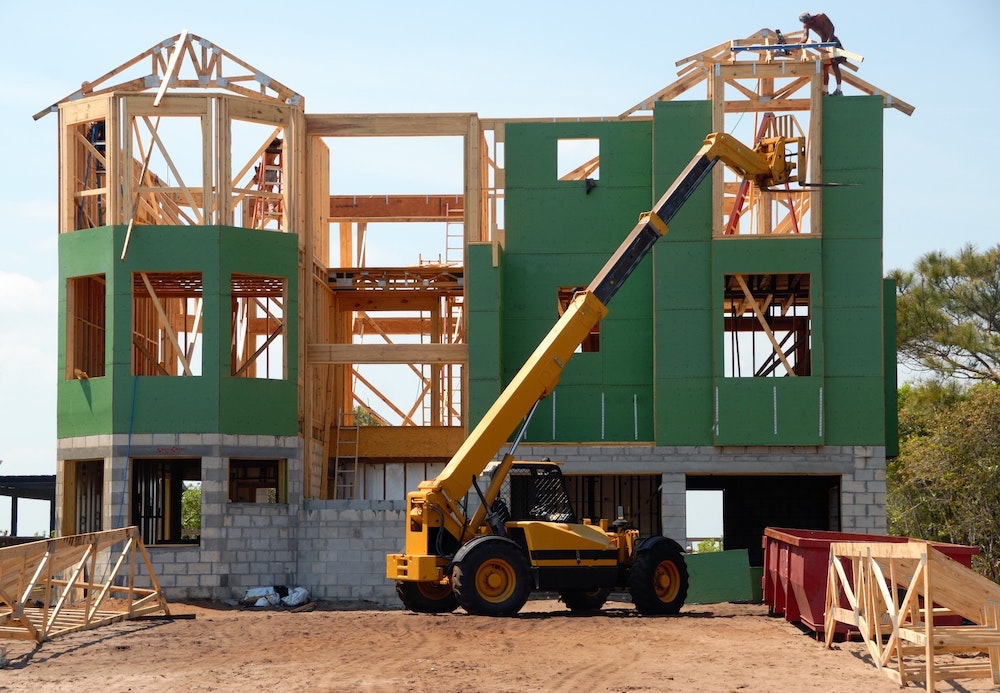Ecology Building Society has announced a raise to the entry criteria for its range of green mortgages for self and custom-build products.
The society indicated that its move intends to accelerate the construction of energy efficient homes to help meet the UK’s net-zero ambitions.
Ecology has increased the minimum energy rating level – or Standard Assessment Procedure (SAP) rating – from 85 to 88, for self-build applicants to achieve when their build is completed.
Building Regulations require that a SAP calculation and a predicted ‘on construction’ Energy Performance Certificate (EPC) is submitted for new dwellings prior to building work commencing.
Ecology’s self-build mortgage starts with an initial standard variable rate of 4.15% while the construction works are underway. On completion of the building works, borrowers are eligible for a discount of up to 1.25% based on the EPC.
The society’s decision to increase the entry level for self and custom-build comes at a time when the government has recently stated that new homes must reduce carbon emissions by 75% by 2025.
Ecology mortgage manager, Daniel Capstick, stated: “Now more than ever it’s important that lenders play an active role in a sustainable recovery, helping to build back better.
“We’ve been leading the way on green mortgages for 40 years and we hope that the changes to our lending criteria will result in our borrowers building more energy efficient homes, which is critical in the fight against climate change.”
Latest News
-
Average UK house price surpasses £300k – Halifax
-
Bank of England holds base rate at 3.75%
-
Mortgage Advice Bureau acquires Dashly
-
Bridging loans fall to lowest average completion time in eight years
-
Regulators announce first six firms to join ‘Scale-Up Unit’
-
House prices recover month-on-month in January – Nationwide
Perenna and the long-term fixed mortgage market

Content editor, Dan McGrath, spoke to head of product, proposition and distribution at Perenna, John Davison, to explore the long-term fixed mortgage market, the role that Perenna plays in this sector and the impact of the recent Autumn Budget
The role of the bridging market and technology usage in the industry
Content editor, Dan McGrath, sat down with chief operating officer at Black & White Bridging, Damien Druce, and head of development finance at Empire Global Finance, Pete Williams, to explore the role of the bridging sector, the role of AI across the industry and how the property market has fared in the Labour Government’s first year in office.
NEW BUILD IN FOCUS - NEW EPISODE OF THE MORTGAGE INSIDER PODCAST, OUT NOW

Figures from the National House-Building Council saw Q1 2025 register a 36% increase in new homes built across the UK compared with the same period last year, representing a striking development for the first-time buyer market. But with the higher cost of building, ongoing planning challenges and new and changing regulations, how sustainable is this growth? And what does it mean for brokers?
Does the North-South divide still exist in the UK housing market?

What do the most expensive parts of the country reveal about shifting demand? And why is the Manchester housing market now outperforming many southern counterparts?
In this episode of the Barclays Mortgage Insider Podcast, host Phil Spencer is joined by Lucian Cook, Head of Research at Savills, and Ross Jones, founder of Home Financial and Evolve Commercial Finance, to explore how regional trends are redefining the UK housing, mortgage and buy-to-let markets.
In this episode of the Barclays Mortgage Insider Podcast, host Phil Spencer is joined by Lucian Cook, Head of Research at Savills, and Ross Jones, founder of Home Financial and Evolve Commercial Finance, to explore how regional trends are redefining the UK housing, mortgage and buy-to-let markets.
© 2019 Perspective Publishing Privacy & Cookies










Recent Stories